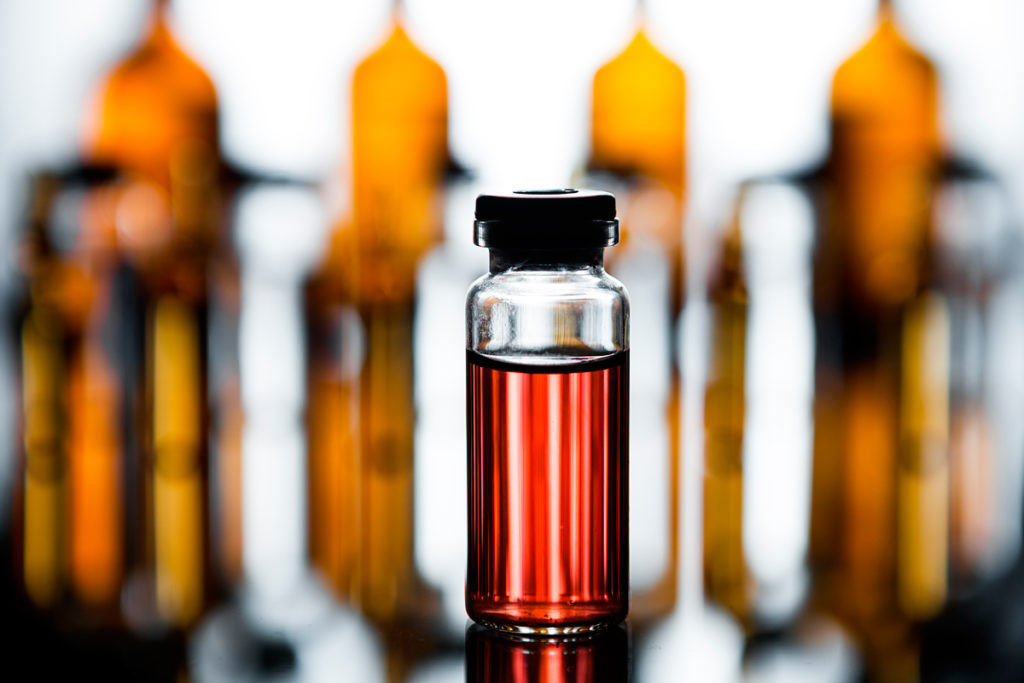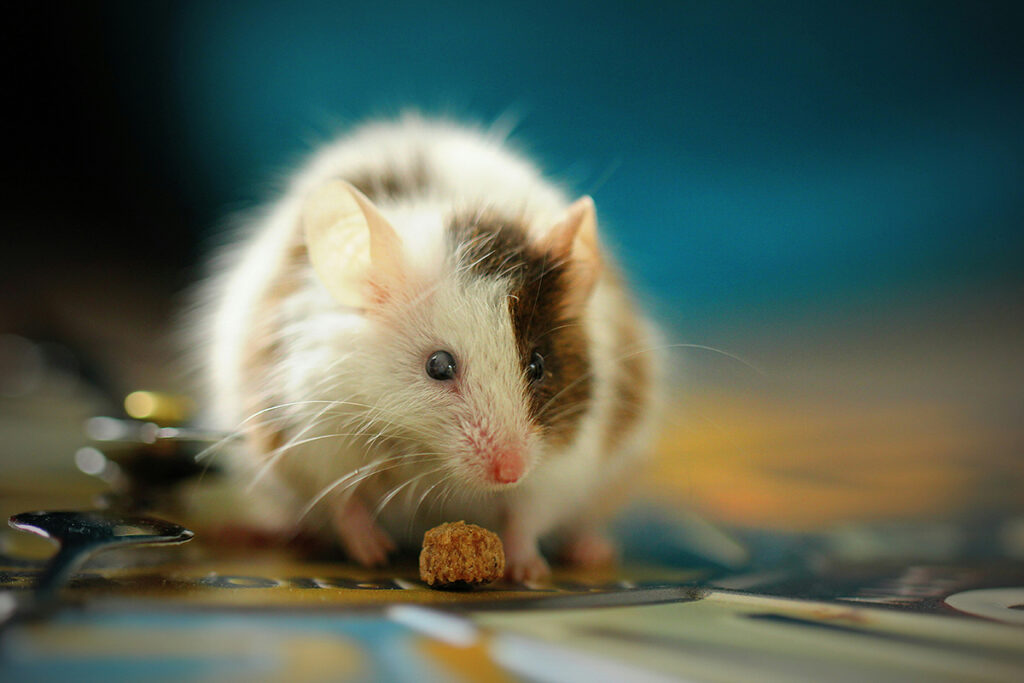The first mention of vaccines is found in Chinese documents of the X century that keep records of vaccinations against smallpox. At that time, liquid from bubbles or crushed scabs of patients with a mild form of smallpox were used to prevent infection. The majority of healthy people who received this vaccination were able to tolerate the disease quickly. But sometimes, instead of material with a mild form of smallpox, a highly virulent one was mistakenly used. Such vaccines were often fatal.
The founder of the modern approach to vaccination, Edward Jenner, developed a different vaccination tactic. His approach’s main idea is to use a similar but weaker cowpox virus instead of the highly virulent black pox virus.
Although the scientific field of vaccine development is more than 200 years old, scientists cannot develop vaccines that would provide full protection for all people. The reason is that the vaccine’s immune responses vary significantly between people and in different regions of the world.
Despite these differences, many studies show that a key role in the immune system’s response to vaccination is played by the intestinal microorganisms community — the intestinal microbiota.
The microbiota consists of bacteria, viruses, fungi, protozoa, and archaea. It controls the mucous membranes’ immune system, the breakdown of nutrients, and prevents colonization by pathogenic microorganisms. The microbiota inhabits the intestines, lungs, skin, and other epithelial surfaces. The action of the microbiota can be either local or systemic.
One of the systemic effects of the intestinal microbiota is the effect on the immune response during vaccination. Studies show that if the microbiota balance is disturbed, antibody responses will also be disrupted after the vaccine is administered.
Microbiaota’s local function
Local interaction of the microbiota with the immune system occurs in the small and large intestines, which contain a large number of B and T cells and antigen-presenting cells. These cells can detect many biomolecules produced by the microbiota. Among them:
- short-chain fatty acids (SCFA);
- metabolites of tryptophan;
- bacterial DNA;
- vitamin a;
- the sphingolipids;
- polysaccharide A;
- muramyl dipeptide.
Some of these compounds pass through the intestinal epithelial membrane and can affect immune cells in the connective tissue layer that lies under its plate of the epithelial membrane.
Antigen-presenting dendritic cells continuously take samples from the gut. If a dendritic cell detects a foreign substance (antigen), it triggers an immune response. It is the basis of antigen-specific immunity.
The composition of the gut microbiota affects the immune system’s ability to respond to pathogens. Oral vaccines for cholera, typhoid, polio, and rotavirus are weakened microorganisms that multiply in the gastrointestinal tract. Oral and systemic antibiotics alter the gut microbiota and affect sensitivity to oral vaccines.
Systemic action of microbiota
The microbiota affects immune responses in remote areas of the body in:
- movement of bacterial products, such as lipopolysaccharides (LPS), from the mucosa to the systemic circulation;
- the Domino effect, in which signals from the microbiota are delivered to cells nearby, which then circulate throughout the body and transmit information through cytokines, metabolites, and other molecules;
- the distribution of metabolites of the microbiota in different body tissues.
An example of the microbiota’s systemic action is that bacterial antigens that spread from the gut to the spleen and mesenteric lymph nodes of the abdominal cavity can trigger the production of immunoglobulins (IgG) — proteins that protect the body from infections.
Another example is the T- and B-cell responses to the HIV vaccine. Scientists have shown that these responses can come from a pool of intestinal cross-reactive immune cells. Most ileal HIV antibodies cross-react with commensal intestinal bacteria.
What affects the vaccine potency
The vaccine’s effectiveness is influenced by various factors: genetics, nutritional status, immunological memory as a result of the previous contact with the pathogen, and maternal antibodies. The immune response to vaccination is also affected by chronic infections such as HIV, hepatitis C virus, tuberculosis, and parasites.
The effectiveness of the vaccine is no less strongly affected by the intestinal microbiota. This fact is important because when large groups of people in developing countries change their lifestyle from traditional to urban, intestinal microorganisms changes.
The effectiveness of the vaccine may vary between people in the same region. Antibody titers after a seasonal flu shot can vary 100-fold between people in the same cohort. And the value of antibody titers and the level of effector T-lymphocytes responsible for the immune response after vaccination with weakened yellow fever vaccine can vary by 10 times.
In different regions of the world, vaccines responses can also vary greatly. The BCG TB vaccine’s effectiveness varies from 0% to 80%, with a more robust immune response in Europe than in Africa. Vaccines against rotavirus, yellow fever, polio, and malaria in Africa and Asia offer less protection than in Europe and the United States and oral rotavirus, and polio vaccines are less effective in low-and middle-income countries.
One of the reasons for differences in immune responses to vaccination is the different intestinal microbiota composition.
That demonstrates a study of the Association of microbiota composition with the immune response to rotavirus vaccine among Ghanaian, Pakistani, and Dutch infants. The design of the microbiota was different in infants who responded and did not respond to the vaccine. The microbiota of the vaccine-responding infants from Ghana and Pakistan was similar to that of the vaccine-responding Dutch infants.
Another study among Bangladeshi infants found that Bifidobacterium abundance correlated with the immune response to the oral polio vaccine and parenteral BCG vaccines, tetanus vaccine, and hepatitis B virus vaccine.
How the microbiota affects the immune system: studying mice
The researchers studied rotavirus infection in mice that had been stripped of their microbiota using antibiotics. In mice, the viral load decreased, and the number of antibodies against rotavirus infection in the serum and mucous membranes increased. In this case, the microbiota may have suppressed antibody responses.
Another study found that segmented filamentous bacteria were sufficient to prevent infection and treat mice for rotavirus infection and associated diarrhea. Segmented filamentous bacteria (SFB) accelerate epithelial cell renewal, meaning infected cells are replaced faster by healthy ones. SFB also stimulates the maturation of T and B cells, which increases the immune response.
The microbiota is necessary for the formation of acquired immunity. A study of systemic and pulmonary infections using the example of systemic lymphocytic choriomeningitis virus and influenza virus showed that mice treated with antibiotics had impaired innate and adaptive antiviral immune responses and the ability to limit virus replication. In these mice, the expression of genes responsible for antiviral immunity decreased, and reactions to interferons of types I and II were disrupted.
American scientists have demonstrated that short-chain fatty acids (SCFA), which are produced by the microbiota during fermentation of dietary fiber, increase the production of antibodies during infection, reducing susceptibility to pathogens. In mice that consumed little dietary fiber, gut microbes produced little SCFA. These mice were more susceptible to disease.
A study of immune responses to vaccination has shown that depletion of the gut microbiota reduces the level of T-helper Th1 and Th17 in response to the antigen. Th1 are the cells that secrete interferon-gamma activate macrophages and stimulate the cellular immune response. Th17 – cells that protect against extracellular pathogens.
Another study showed that the microbiota is necessary for the production of antigen-specific immunoglobulin G (IgG) and M (IgM). In mice without microbiota and in mice treated with antibiotics, IgG and IgM responses to the seasonal flu vaccine decreased.
These facts confirm that the gut microbiota regulates innate and adaptive immune responses to both oral and systemic infections.
Microbiota increases the effectiveness of the vaccine against seasonal flu
The study participants were vaccinated against seasonal flu. On day 3-7 after vaccination, the expression of TLR5, the innate immune system receptor that recognizes the bacterial flagellin protein, increased in peripheral blood mononuclear cells (PBMC). The TLR5 level correlated with the strength of the antibody response to the vaccine after 4 weeks.
Scientists have investigated how TLR5 affects the effectiveness of the flu vaccine. In mice with TLR5 knockout, no antibodies were produced in response to vaccination. It shows that TLR5 regulates the immune response to the seasonal flu vaccine.
Flagellin produced by the microbiota increases the production of antibodies in response to influenza vaccination. It is confirmed by the experience in mice that were deprived of microbiota with the help of antibiotics. The production of IgG and IgM antibodies in response to vaccination on day 7-14 was reduced. When the mice had their gut microbiota restored, antibody production returned to normal.
These results were tested on other vaccines. The effect of adjuvant vaccines — vaccines that contain substances that enhance the immune response – did not depend on the microbiota. But on non-adjuvant vaccines, the microbiota acted as an endogenous adjuvant.
Probiotics and vaccine strength
Probiotics are preparations made from living microorganisms that improve the composition of the intestinal microbiota.
American scientists have studied the effect of probiotics on the effectiveness of oral rotavirus vaccine in pigs. The probiotic increased the production of antibodies, which did not occur in the control group of pigs devoid of the microbiota.
At the same time, the administration of probiotics to infants produced different results depending on the antigen, probiotic strain, and geographical region.
The impact of antibiotics
In a 2016 study, researchers sought to improve the effectiveness of an oral polio vaccine in Indian infants. Before vaccination, Indian infants received the broad-spectrum antibiotic azithromycin. That did not increase the effectiveness of the vaccine, but it did reduce the number of pathogenic intestinal bacteria. At the same time, the response to the polio vaccine was correlated with a lower number of concomitant enterovirus infections.
A study of the effect of antibiotics on the impact of rotavirus vaccine in adults showed that a broad-spectrum antibiotic does not affect IgA antibody titers, but a narrow-spectrum antibiotic increases IgA production on day 7. Both types of antibiotics increased the release of rotavirus, indicating better replication and reception of the vaccine.
At the same time, no effect from taking antibiotics in adults was observed on parenteral non-adjuvant pneumococcal polysaccharide and parenteral adjuvant tetanus toxoid vaccines.
Most people are already immune to seasonal flu due to an infection or vaccination. Immunological memory accelerates the body’s response to repeated immunization. This reaction may be independent of the microbiota. However, primary immune responses to antigens that the immune system is not yet familiar with may depend more on the microbiota. It was confirmed by a study on people who had not been vaccinated against the flu and had not had the flu in the previous 3 years. These people had noticeably lower anti-flu antibody titers before vaccination than those who had previously been vaccinated or had been ill. In this study, participants who received antibiotics had significantly lower levels of H1N1-specific IgG1 and IgA antibodies. They also had a violation of the ability to neutralize the H1N1 influenza virus strain. Moreover, a decrease in IgG1 and IgA titers was observed only for the H1N1 strain, but not for H3N2 or B. These results show that in the absence of pre-existing immunity, microbiota insufficiency can lead to impaired antibody production in response to the seasonal flu vaccine.
Issues of newborns vaccination
After birth, the baby adapts to life outside the uterus. His immune system must cope with foreign bacteria and particles that fall on the epithelium. During this period, the microbiota is born. The microbiota and immune system depend on whether the birth was premature, the method of delivery, and the diet. At the same time, newborns have a high risk of contracting infections that are sometimes treated with antibiotics. Antibiotics can cause damage to the emerging microbiota.
Newborns are vaccinated against a variety of pathogens. The ability to predict the effectiveness of a vaccine based on immune status, or the ability to develop vaccines tailored explicitly to the immune system of newborns, would be fundamental advances.
Issues of elderly vaccination
The advent of antibiotics and vaccination has increased life expectancy. The associated increase in the number of cases of obesity and metabolic disorders creates problems for vaccinating the elderly since metabolic disorders strongly affect the immune system. The gut microbiota of older people is less likely to produce SCFA, which also affects the immunological state of older people.
A study in mice showed that intestinal permeability increases with age. It causes bacterial products such as lipopolysaccharides and flagellin to spread from the gut to the systemic circulation and cause inflammation. A 2020 study found that inflammation weakens the immune system and reduces the effectiveness of vaccines. Therefore, future research on older people should examine the mechanisms by which intestinal dysbiosis causes an age-related decline in immune function.
Further study of the effects of microbiota on immunity may be critical for developing new vaccines and improving their effectiveness.



